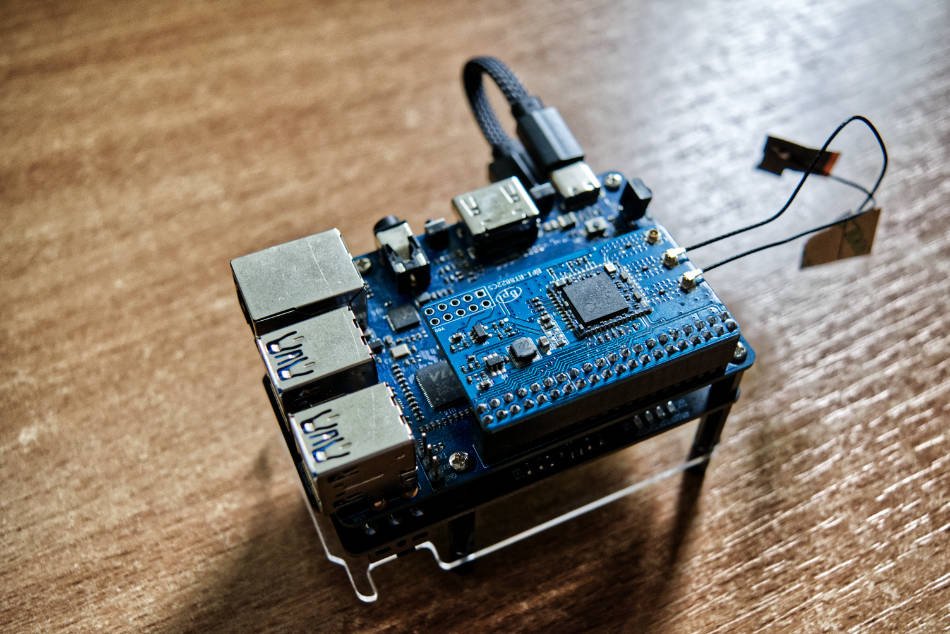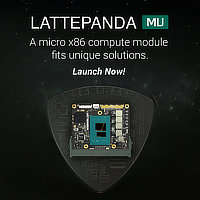SBCs are great. Reading through our extensive list of SBC reviews we’ve created over the past few years, one can notice our own love for these little systems enabling everyone to deploy IoT systems and create various server-based projects, among other things. At the same time, certain models have proved themselves worthy of serious industrial use thanks to their wide IO arrays and reliability. SBCs also draw impressively little power, with the most power-hungry models rarely requiring more than 15W under top loads, making them very easy to power.

Sadly, that power is usually provided by a switched-mode power brick attached to a nearby outlet and delivered through a USB port – which means that there’s nothing between a power outage and your data being lost or services being fully interrupted. Short of a full-size desktop UPS, there’s not much that can be done to combat outages – but given the fact that compact size is one of the biggest upsides of an SBC, it’s easy to see why a large, bulky battery backup box is somewhat inappropriate in most use-cases.
In today’s review we’re taking a look at a solution to this problem – SunFounder’s PiPower – a tiny, easily attached and sleek UPS system designed for SBCs. While it’s not the first device of its kind, it’s certainly the neatest one we’ve seen so far. SunFounder sent this device free of charge to us for review purposes.

Inside the box are quite a few parts – all the screws and standoffs, an acrylic backing plate, a screwdriver and the PiPower module itself. Two high-quality braided cables (one Type-C and one Micro USB) for connecting the UPS to the SBC are also included in the set – which is a great touch. These cables are extra-short, which is great for keeping the setup tidy (can you even easily get such tiny cables commercially?) and for keeping the overall footprint small.
PiPower uses Li-ion cells in the 18650 size, which are relatively inexpensive, common cells used in many industrial and consumer products. There’s no cells in the set, though, so you’ll have to supply your own. For the purpose of this test, we’ve reached out to Telit Power, a Serbian company specialising in battery equipment and representing many industry leaders in the field. They’ve kindly provided us with two each of Panasonic’s NCR18650B and Samsung’s INR18650-35E batteries for use in this review.

After battery installation and some assembly (it was pretty easy, though) we were left with a pretty svelte package. The inclusion of a USB-C type connector for power is also very welcome, as nowadays it’s truly the most common port.
Sadly, USB-C is somewhat of a flimsy connector – and the port on our review unit got snapped off during shipping. What’s worse, one of the copper pads also got torn off the board. This is not the manufacturer’s fault – but it still took us some serious soldering work to get the pad back in place and the entire connector soldered in place.
With the little fix in place everything worked brilliantly! PiPower offers USB passthrough, so the batteries can charge in the background as the SBC gets normal power. The switch on the board, curiously, only controls battery power to the board and does not switch stop power routing from the port (making it impossible to charge the batteries with the SBC off, though).
The charging circuitry is well designed and offers both a charge lamp and four hardware charge level indicators – and also offers overcurrent, undervoltage, overheat and overcharge protection. While we can’t fully comment on the exact workings of these systems, we’ve tried shorting the output, put the system in high ambient heat and tested several full charge cycles under high loads – and the batteries are still whole and unexploded – so we’ll say that the system happily takes some rough use with no issues. We’ve also tested the speed at which the supply kicks in – and not once did the system shut down due to a momentary loss of power.
Battery life is pretty great, but heavily depends on the SBC and CPU load. At an idle 1.1 W-1.5 W that most SBCs draw the Panasonic batteries lasted around 14.3 h, while under an overclocked load of 10 W they lasted for 2.7 h on average. The Samsung cells provided a bit more punch, with an extra 20 m for each tested category, but a longer charge time, as well.

The use of 18650 cells in this product is more than clever, as they can provide huge peak currents (the Samsung cells we’ve tested can max out at 8 A) needed for processor bursts or overclocking, while still maintaining low temperatures and a small footprint.
Overall, we’re pretty happy with the PiPower UPS from SunFounder. It’s a great little uninterruptible power supply unit that has seamless passthrough charging and kicks in only when it’s needed and the power is cut. For the price – $19 – it’s not the cheapest such system – especially when batteries aren’t included. Thankfully, these cells are relatively inexpensive and easy to find and offer great performance. We think that the PiPower is a worthy purchase for all those looking to safeguard their SCB-hosted servers or other such projects, and as such, we have to recommend it.
More informations : SunFounder PowerPI : https://www.sunfounder.com/collections/raspberry-pi-store/products/power-pack
More informations : Telit Power Battery Cells : https://telitpower.com
- Raspberry Pi AI Camera review: Even more approachable AI - 10/22/2024
- Arturia AstroLab review - 09/29/2024
- Raspberry Pi AI Kit review - 08/16/2024





